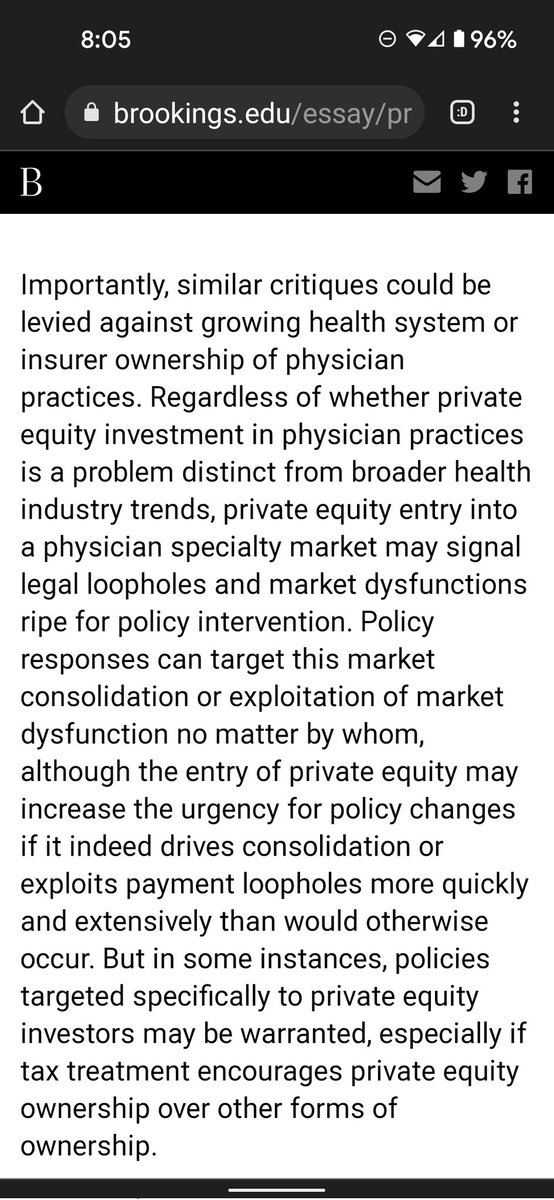
1/ Omicron is ripping through America right now, to an extent we won't fully realize until later
At this point, I think most people can hope to delay infection, but not to avoid it.
I don't think herd immunity is a realistic goal anymore
Here's what I think it means for us
At this point, I think most people can hope to delay infection, but not to avoid it.
I don't think herd immunity is a realistic goal anymore
Here's what I think it means for us
2/ Even as the Delta wave continues to kill over a thousand people a day, Omicron is already here, and there is no reason to believe that the explosive growth we have seen in other countries, and in local outbreak (like Cornell University) isn't happening across the US already. 

3/ an Intrinsic infectiousness that is perhaps 2-3 times higher than Delta, with a short incubation time, and at least some measure of immune escape- means that we are unlikely to get Rt below 1 (and the outbreak quenched) before it rips through a large proportion of susceptibles
4/ The good news is that it is certainly not worse than Delta, and quite possibly better in terms of severity- especially when infections occur among those with prior immunity from vaccine or infection.
So what does it mean for us individually?
It's liberating in a sad way.
So what does it mean for us individually?
It's liberating in a sad way.
5/ I can stop worrying about the social obligation of trying to contain the epidemic more broadly, and focus on my immediate circle
I am not immunocompromised and I am vaccinated and boosted.
Everything would indicate that I will be fine if infected (and that seems inevitable)
I am not immunocompromised and I am vaccinated and boosted.
Everything would indicate that I will be fine if infected (and that seems inevitable)
6/ those who are choosing not to get vaccinated will see explosive rates of infection, and will become immunized (and some will get very sick). I can't do anything about that.
I am most worried about the immunocompromised and the elderly. (The children were never at high risk)
I am most worried about the immunocompromised and the elderly. (The children were never at high risk)
7/ for them, it just became a lot harder.
They will have to boost certainly if they haven't already. But also to isolate, to ventilate, to use N95 masks, and to hope that they can delay the inevitable until the antiviral pills are available in.. weeks?
nytimes.com/2021/12/14/hea…
They will have to boost certainly if they haven't already. But also to isolate, to ventilate, to use N95 masks, and to hope that they can delay the inevitable until the antiviral pills are available in.. weeks?
nytimes.com/2021/12/14/hea…
8/ the other big concern right now is whether hospitals and healthcare facilities will be even more overwhelmed and overrun, with the increase in mortality it would portend.
The fact that omicron has at least some immune escape ... is reassuring to me.
Here's why
The fact that omicron has at least some immune escape ... is reassuring to me.
Here's why
9/ to explain Omicron rapid replacement of Delta, it would have to be a combination of intrinsic infectiousness and immune escape.
The more the immune escape, the less the Ro, and vice versa.
(As usual @trvrb put it best, read his thread)
The more the immune escape, the less the Ro, and vice versa.
(As usual @trvrb put it best, read his thread)
https://twitter.com/trvrb/status/1466076797670363140?t=yiI6Zhz_ufyVgt7g1qumMA&s=19
9/ if it was all freakishly high Ro among the unvaccinated, uninfected, then the pockets where we have those would be absolutely ablaze, and local hospitals overwhelmed.
The fact that we know there's at least some immune escape suggests a more general, evenly distributed spread
The fact that we know there's at least some immune escape suggests a more general, evenly distributed spread
10/ (small blessings, I know)
What does this mean for "the authorities"?
First, we HAVE TO protect the most vulnerable elderly, those in nursing homes, with boosters. NOW. It's criminal to wait on this.
We screwed this up once. Not again.
webmd.com/vaccines/covid…
What does this mean for "the authorities"?
First, we HAVE TO protect the most vulnerable elderly, those in nursing homes, with boosters. NOW. It's criminal to wait on this.
We screwed this up once. Not again.
webmd.com/vaccines/covid…
11/ I believe that "fully vaccinated" in the context of Omicron will mean boosted.
There is a big difference in protection.
The sooner we recognize this officially the better.
And we then have to mobilize to deliver all those boosters
cnbc.com/2021/12/14/cov…
There is a big difference in protection.
The sooner we recognize this officially the better.
And we then have to mobilize to deliver all those boosters
cnbc.com/2021/12/14/cov…
12/ but here is where I might change my advice from before (and may differ from leaders I respect)
I don't think it makes sense to mount a costly battle, in school and work shutdowns, that we cannot win.
I don't even think we can hope for much "flatten the curve" effect
I don't think it makes sense to mount a costly battle, in school and work shutdowns, that we cannot win.
I don't even think we can hope for much "flatten the curve" effect
13/ I don't think schools and colleges with vaccinated students should shut down when cases inevitably mount (and send the students where?)
Instead they should focus on protecting any older staff or students who are immunocompromised, and keep open.
cbsnews.com/news/covid-19-…
Instead they should focus on protecting any older staff or students who are immunocompromised, and keep open.
cbsnews.com/news/covid-19-…
14/ if you have a special trip planned, then batten down the hatches right now.
But I am now assuming that I will get the infection, though most probably not severe disease
I am no longer expecting that I can dodge this.
I just hope my parents can delay til the pill is here
But I am now assuming that I will get the infection, though most probably not severe disease
I am no longer expecting that I can dodge this.
I just hope my parents can delay til the pill is here
15/ let me end on less depressing note.
Delta was a lot more catchy, but no more severe than OG COVID
It actually suppressed down to essential irrelevance the other, more deadly, strains.
Omicron could be Delta to Delta
Delta was a lot more catchy, but no more severe than OG COVID
It actually suppressed down to essential irrelevance the other, more deadly, strains.
Omicron could be Delta to Delta
https://twitter.com/EricTopol/status/1434885492198166529?t=odjPskJ_W7CXZ6N_NCwFJA&s=19
16/ if it turns out that Omicron is less deadly than Delta, it could end up rapidly "immunizing" all corners of the globe, and "boosting" those of us with pre-existing immunity, and preventing the spread of more severe strains.
(Let us pray)
(Let us pray)
• • •
Missing some Tweet in this thread? You can try to
force a refresh









